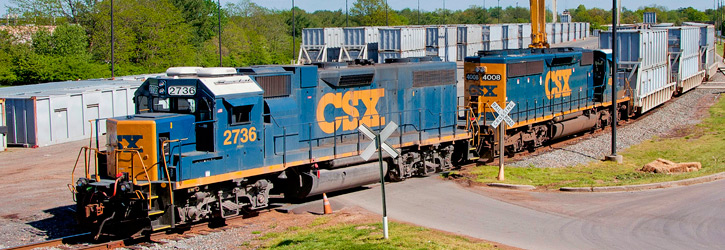
Waste-By-Rail
Moving bulk waste by rail is an important area of interest to clients in the public and private sectors, requiring an understanding of the unique factors involved in this specialized class of bulk freight. RLBA performs operations, economic, engineering and equipment feasibility studies for clients initiating or expanding waste-by-rail projects.
Select Project Descriptions:
GENERAL ELECTRIC:
RLBA analyzed the feasibility of rail transportation of PCB-contaminated soils to be removed from the Housatonic River under terms of an agreement between General Electric and the Environmental Protection Agency. EPA directed that rail transportation be evaluated and GE turned to RLBA, which responded by conducting a field inspection, meeting with Housatonic Railroad officials and contacting CSX as well as potential disposal sites served by rail. RLBA developed a rail transportation operating plan, identified rail infrastructure needs and estimated railcar fleet requirements under high and low material volume scenarios.
LOS ANGELES COUNTY SANITATION DISTRICT:
RLBA was contracted by the Los Angeles County Sanitation District (LACSD) to provide professional assistance in updating and expanding a report to evaluate costs and equipment issues associated with the operation of two proposed intermodal terminals that are to be part of LACSD’s waste-by-rail project. As part of the scope of work, RLBA organized and built a site specific intermodal terminal costing model that created workload metrics which were used to solicit cost estimates from third-party terminal operating companies. To accomplish this, RLBA calculated operating costs and expressed them in costs per ton. Furthermore, RLBA recommended changes in rail car specifications and order quantities, and developed costs and background information to inform terminal operating equipment lease and purchase options.
NORTHEAST MARYLAND WASTE DISPOSAL AUTHORITY:
The Northeast Maryland Waste Disposal Authority (NEMWDA), in conjunction with Montgomery County, Maryland, constructed a mass burn generation plant fueled by municipal solid waste hauled via a state-of-the-art intermodal transportation system. Prior to completion of the intermodal system, RLBA:
- provided a comprehensive review of competitive bidders’ transportation proposals in respect of their operational feasibility and their conformance to throughput, technology, layout and other plant features as well as intermodal transportation requirements;
- identified advantages and disadvantages of each proposal; and
- recommended improvements to each. In addition, RLBA assisted NEMWDA staff in resolving issues of system reliability, design modification to accommodate future expansion, and intermodal terminals construction oversight.
